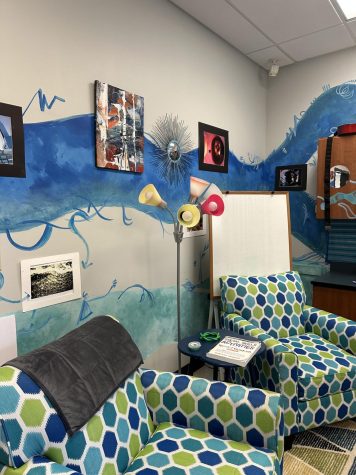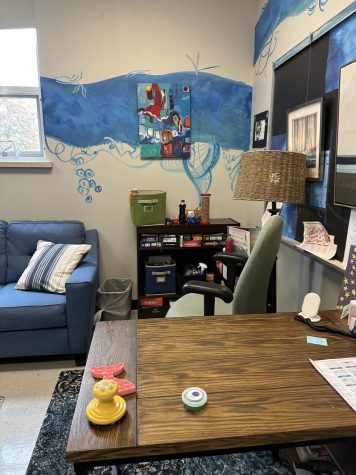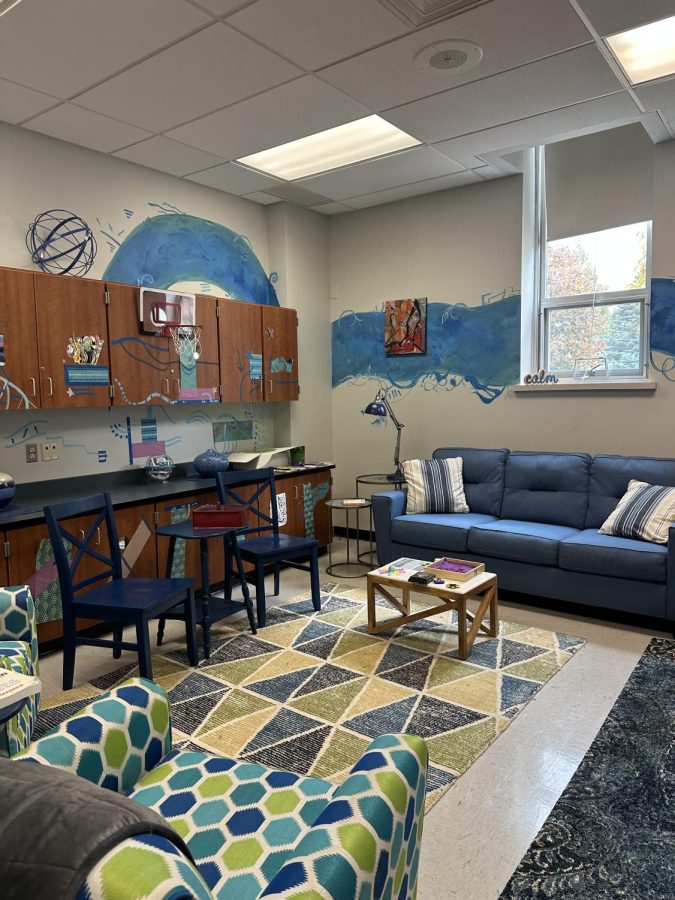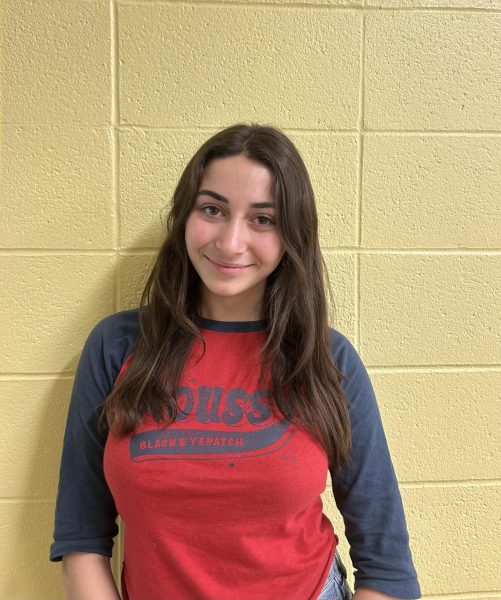Take Care of Your Mind This November: Mental Health Resources at THS
November 3, 2022
 Whether we’d like to admit it or not, stress and anxiety are things that Tenafly students deal with on a daily basis. Sometimes the severity of what students go through is diminished to something less than it actually is. This is usually due to the stigma that surrounds the idea of “mental health,” and why it’s hard for many students to admit how they actually feel. As is, just going through a regular day of school can take up a lot of energy. Being a teenager in 2022 also means carrying the burden of social media, coping with the pressure of school, and the desire to live up to our expectations for ourselves and the ideal high school experience. The reality is that it is almost impossible to do it all, and that’s perfectly fine. It’s time that, as a school, we erase the stigma and use our shared experiences to bring us closer together. Let this be a step forward: if you are a student who is struggling right now, know that you are not alone. There are plenty of resources at this school that are not talked about enough, so here’s how you can receive the help you need.
Whether we’d like to admit it or not, stress and anxiety are things that Tenafly students deal with on a daily basis. Sometimes the severity of what students go through is diminished to something less than it actually is. This is usually due to the stigma that surrounds the idea of “mental health,” and why it’s hard for many students to admit how they actually feel. As is, just going through a regular day of school can take up a lot of energy. Being a teenager in 2022 also means carrying the burden of social media, coping with the pressure of school, and the desire to live up to our expectations for ourselves and the ideal high school experience. The reality is that it is almost impossible to do it all, and that’s perfectly fine. It’s time that, as a school, we erase the stigma and use our shared experiences to bring us closer together. Let this be a step forward: if you are a student who is struggling right now, know that you are not alone. There are plenty of resources at this school that are not talked about enough, so here’s how you can receive the help you need.
First things first, know that there are plenty of options. If what you are going through requires a minor activity or destresser, Ms. Lopes, the THS Student Assistance Counselor, and Ms. Huston, the THS Clinical Program Manager, offer an anxiety-strategies group and an executive functioning group. But if the situation is more severe or more personable, make an appointment with your guidance counselor. The door is always open and there is no judgment whatsoever. I the situation expands or you still feel unresolved conflicts even after talking it through, your guidance counselor can set you up an appointment with the Student Assistance Counselor, Ms. Lopes.
Ms. Lopes has taken over for the previous Student Assistance Counselor, Ms. Gould. She specializes in substance abuse and more recently in mental health. She is the person who would work with your guidance counselor if there was a potential problem with scheduling or any situation in the building. Her door is always open for students to come talk, put their heads down, or work through problems. She makes it clear that mental health is not a permanent label and that it is always changing: “Just because there’s one issue doesn’t mean they need to get lifelong help—it could be a short term issue. I see students only once in long stretches of time; everyone is different,” she said. However, if a problem or issue extends beyond school measures, and requires a student’s parents or outside help, a student should seek Ms. Huston.
Ms. Huston, the Clinical Program Manager, is a Licensed Professional Counselor (LPC). Located in the guidance office, she is the final destination on the road to getting outside help. Not just a regular therapist, her exceptional role inside the school is much di

fferent than the average form of practice. Ms. Huston explained, “rather than a private practice, I really like working collaboratively—with student permission—I can help them talk to a teacher as opposed to a fantasy conversation where you do not know the facts, hearing the problems with no turnaround result.” Ms. Huston is not employed by the school; rather, she is from Care Plus, so her work is a combination of conversations between her, the student, and the students’ parents to find outside help. However, here in the school, we have the power to make the changes that are causing a lot of the stress and agony in the first place. We can go straight to the source and eliminate it. Not only that, Ms. Huston offers the resources to help students tackle their issues as well: “for anxiety, we work on coping skills: considering their anxious thoughts and reframing them in ways that are more helpful, working on mindfulness and relaxation techniques, mainly helping students become successful at school.” Unfortunately, this work does come with its challenges. The hardest part is sometimes just seeking the help itself. “There is definitely a pressure to be secretive about taking care of [oneself] due to the stigma,” Ms Huston recalled. However, with the upsurge of awareness and openness in more and more students, mental health is slowly becoming a majority, and not as much a minority issue. Students are becoming aware of the spectrum mental health is rather than the box. Everyone is just as capable of having a bad day as a good day, all of which is relative to mental health.
![]()
![]()
![]()
![]()


Both Ms. Houston’s and Ms. Lopes’ coping groups run during lunch. If you’re interested in joining a support group, you can check your email to sign up. The blue room is also available to students who need to take a breather. The blue room, also located in the guidance office, is a space where there is no obligation needed; you can just unwind, relax and even go on your cell phone, but there will always be staff to support. You can eat lunch in the blue room, talk, play games, and relax. It all just starts with reaching out, which can always be a scary thing, but it is the only way to seek the help you need. Even if you do not struggle with mental health right now, just know that there are places to seek help if needed. As said many times before, you never know what someone is going through; keep an open mind going down the halls as well as an open heart for the people who need it most. And of course, take care of yourself. What we forget is that it is completely normal to have stress and anxiety, and that it is completely normal to feel more down sometimes: it’s a part of human nature. What’s important is that you are able to take care of yourself and know that the school is able to take care of you too.

















































































































































